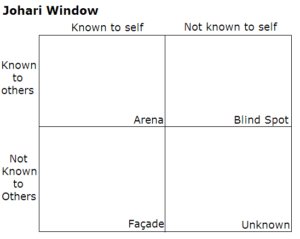Six Degrees of Separation
Know anyone famous? Want to know anyone famous? According to the theory “6 degrees of separation”…
“All living things and everything else in the world are six or fewer steps away from each other.”
That means, the famous person you want to meet is only six steps — or degrees — away from you. So, Harrison Ford or John Travolta (or whoever it is you want to meet) are connected through five or less other people. Not sure you buy into the theory?
I met a guy in the grocery store a while back who is friends with Harrison Ford. Had I been able to get the guy’s name and number, you would be connected to Harrison Ford through just two people.
Here’s another example. I worked with a guy years ago who is friends with John Travolta. He had John’s number in his cell phone. So, that means you are connected to John Travolta through just two people.
Don’t take my word for it, though, the theory actually has scientific merit too.
“Assuming everyone knows at least 44 people, and that each of those people knows an entirely new 44 people, and so on, the math shows that in just six steps everyone could be connected to 7.26 billion people — more than are alive on earth today.” (Are We Really All Connected by Just Six Degrees of Separation?)
Experiments have been carried out to give the theory even more credence. Not only that, but the shoot-off game “6 Degrees of Kevin Bacon” provided additional scientific data to strengthen the theory.
Who You Know Matters
Let’s personalize this a bit. When someone wants to find a job today, how valuable is it that they know someone at the company where they’re applying? Almost all of my own work right now exists as the result of knowing someone, not of me actively seeking the work. Even in the Bible we see that who you know matters. Consider Moses and Daniel as examples of this.
Who we know matters. It matters to us in a variety of ways from personal and professional to satisfying a need within us to connect with people who make us feel important.
A Need to Be Known
All people have a need to know and value themselves and to be important to others. Psychologists call this the Relational Value/Social Influence need. Being known is important to us because of how it connects with our individual experiences, private thoughts, and public image. This knowing has a tremendous impact on our character structure and well being.
Timothy Keller in The Meaning of Marriage makes a poignant statement about the power of this need.
“To be loved but not known is comforting but superficial. To be known and not loved is our greatest fear. But to be fully known and truly loved is… a lot like being loved by God. It is what we need more than anything. It liberates us from pretense, humbles us out of our self-righteousness, and fortifies us for any difficulty life can throw at us.”
This statement is even more profound when we remember that Scripture uses marriage as a metaphor for Christ and the church (Ephesians 5:22-32). Those of us in Christian marriages understand the value of that relationship for better understanding how our relationship with Christ is to exist.
Yet, no matter how good our marriages or any other relationships are, we never have 100% knowledge in them. We aren’t fully known, and we don’t fully know others. The fact is that any knowing outside of God never fully satisfies.
Everyone desires to know and be known because God created us for relationship. More specifically, he created us for relationship with him.
“The Spirit himself testifies with our spirit that we are God’s children.” (Romans 8:16)
And as our creator, only he can know us fully. In fact, he knows us better than we know ourselves.
God Knows Us Intimately
“To know thyself is the beginning of wisdom.” (Attributed to Socrates)
As Christians, we believe that “the fear of the Lord is the beginning of wisdom” (Proverbs 9:10). However, we can still agree that knowing yourself does bring a depth of wisdom essential for living life in a successful way.
Psychologists say that knowing yourself brings the following benefits:
- Happiness
- Less inner conflict
- Better decision making
- Self-control
- Resistance to social pressure
- Tolerance and understanding of others
- Vitality and pleasure
Yet, we can’t even know all there is to know about ourselves. The Johari Window illustrates this truth well.
 Only God can truly know all there is to know about each one of us. He can do this because, he created us.
Only God can truly know all there is to know about each one of us. He can do this because, he created us.
“For You formed my inward parts; You wove me in my mother’s womb. I will give thanks to You, for I am fearfully and wonderfully made; Wonderful are Your works, and my soul knows it very well. My frame was not hidden from You, when I was made in secret, and skillfully wrought in the depths of the earth; Your eyes have seen my unformed substance. And in Your book were written the days that were ordained for me, when as yet there was not one of them.” (Psalm 139:13-16)
God created us. He knew us before we had physical form and even orchestrated the days of our lives before one of them began. He knows us intimately. It stands to reason, then, that the best way to knowing ourselves better is to know God better.



